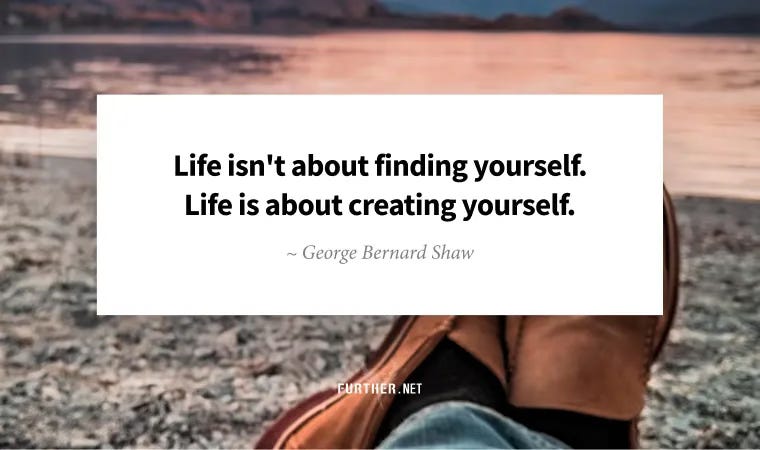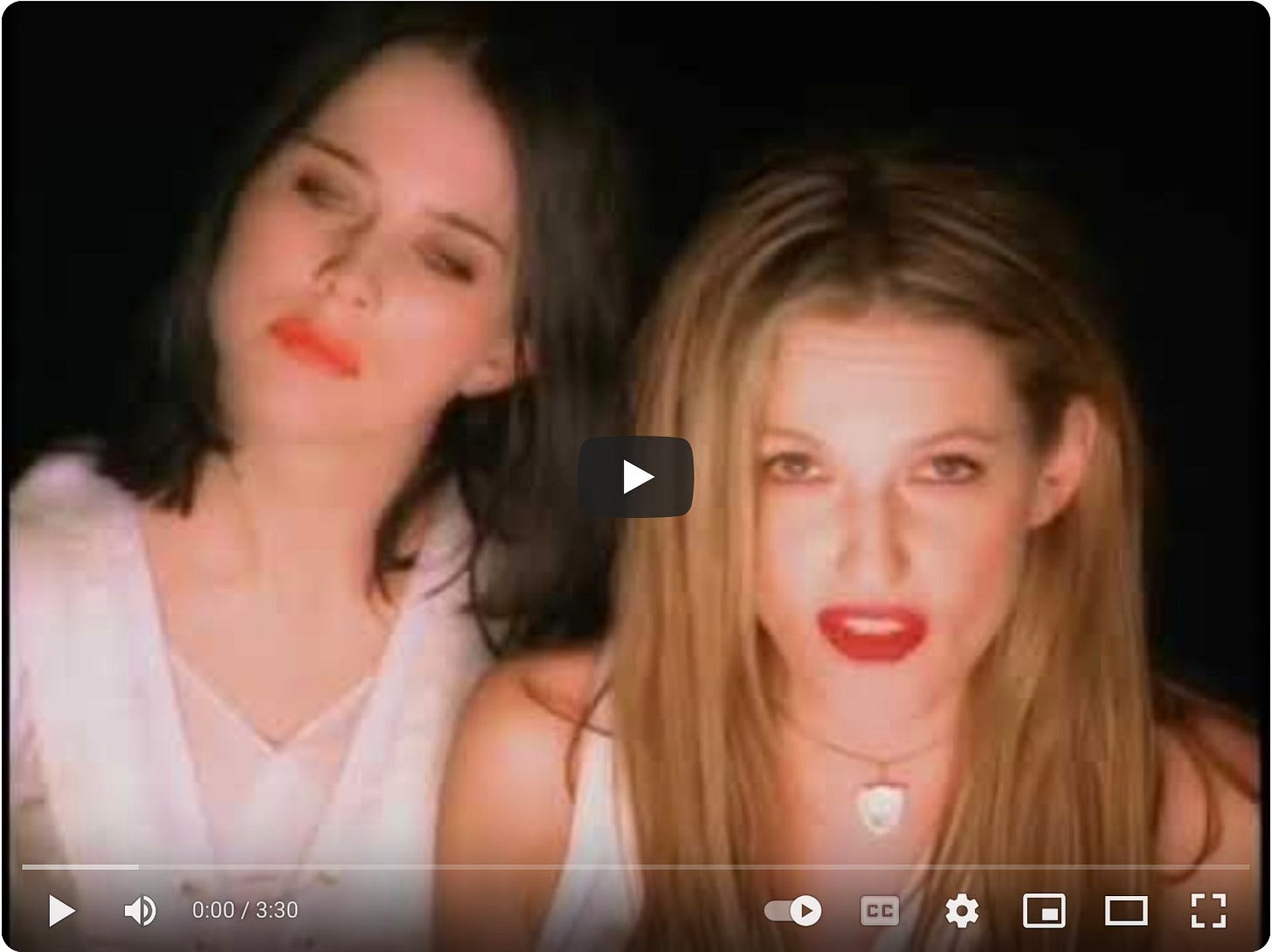Carpe Vitam: The Time for Your Midlife Reinvention is Now
This life is not a dress rehearsal.
Despite being set in 1959, Dead Poets Society is a quintessential Gen X film.
O Captain! My Captain!
Young Ethan Hawke.
That devastating plot twist.
But most of all… carpe diem. The Latin phrase for “seize the day.”
Robin Williams as John Keating introduced his students to more than just poetry. He inspired them to make the most out of life:
Carpe diem. Seize the day, boys. Make your lives extraordinary.
Now that we’re at midlife, I’d like to propose an alternative Latin phrase for Generation X:
Carpe vitam. Seize your life.
Not just the day, not just the moment, but your life itself in all its complexity and possibility.
While carpe diem suggests grabbing fleeting opportunities, carpe vitam implies something more profound — the intentional shaping of your future self.
We're arriving at this concept at exactly the right moment. Now mostly in our mid-40s and 50s (with the eldest Xers reaching 60 this year), we're approaching midlife reinvention with a perspective no generation before us has possessed.
We're doing it our way. We’re systematically redesigning our lives to align with who we're becoming, rather than who anyone thought we should be. And we’re also adapting to a world that we didn’t create, but must effectively deal with to thrive.
And yet, despite a shift in personal values that may have you thinking in terms of purpose more than traditional social status, you may be experiencing resistance.
So let’s take a look at that. Because you’re not alone.
Working for Your Future Self
Reinvention is about becoming a different person, to some degree, in the future. So our present self must take action on behalf of our future self. Simple enough.
The problem is our brains are wired to value instant gratification over the welfare of our future selves. Neurological scans reveal that we think of our future self as if it’s an entirely separate person:
Unsurprisingly, people’s brains were most active when thinking about their current selves and least active when thinking about a current other. But Hershfield’s team found that participants’ brain activity while considering their future selves more closely resembled brain activity while thinking about a current other rather than the current self.
So, when you save for retirement, for example, it can feel like you’re giving your money to someone else. Conversely, those who succeed in reaching their goals take steps today that help them become who they want to be in the future precisely because they will be a different person.
The story that makes up our sense of self comes from remembering the past, while intentional change comes from imagining our future. It’s easier to remember than to imagine, so we’re led to believe that who we are in the moment is the final destination of who we’ll ever be.
And that’s completely wrong.
Harvard psychologist Daniel Gilbert explores the psychology of your future self in an illuminating TED talk. He reveals the fallacy created by the way we experience our present selves and how we change much more than we anticipate:
The bottom line is, time is a powerful force. It transforms our preferences. It reshapes our values. It alters our personalities. We seem to appreciate this fact, but only in retrospect. Only when we look backwards do we realize how much change happens in a decade.
It’s as if, for most of us, the present is a magic time. It’s a watershed on the timeline. It’s the moment at which we finally become ourselves. Human beings are works in progress that mistakenly think they’re finished. The person you are right now is as transient, as fleeting, and as temporary as all the people you’ve ever been. The one constant in our life is change.
Now, prepare for a healthy dose of reality. As we age, the rate of change slows down for many of us. Older people tend to become less open to new experiences, which leads them to stop seeking novelty and change.
Of course, it doesn’t have to be that way. There’s nothing inherent about midlife or thereafter that says you can’t change as much as you want to. But you’ll have to actively seek new experiences outside of your comfort zone, which means having a reason to do that in the first place.
The key questions are first, what do you really, truly want to change about yourself? And second, what will be the driving force that allows you to achieve that change?
The Personality Project
When we talk about who we are and why we behave the way we do, we’re talking about personalities. Your personality is the combination of characteristics that form your distinctive character, and research shows that the vast majority of us would like to change some aspect of ours.
Personality is generally thought of as a collection of traits you possess. In psychology, the “Big Five” personality traits are:
Openness to experience
Conscientiousness
Extraversion
Agreeability
Neuroticism
Keep in mind that these are not personality types, but rather traits that we all have along a variable spectrum. For example, extraversion and introversion are opposite ends of the extraversion spectrum, and generally, people fall on some point in between these poles.
Beyond the traits that you have thanks to nature and nurture, there’s what you choose to do. And this is where intentional change happens.
Dr. Brian Little is an acclaimed professor at the University of Cambridge who specializes in personality and motivational psychology. Dr. Little calls the “doings” of our daily lives personal projects, and they’re all about working to create your future self through meaningful actions.
His pioneering research on how personal projects influence the course of our lives has become an important way of both explaining and enhancing human flourishing. In this case, that means becoming closer to the person you want to be by effectively altering your personality over time.
Little’s research identifies three motivational sources that make up our personalities.
First is biogenic; our genetics influence who we are and how we tend to act.
Second is sociogenic; the culture that shapes us and defines acceptable behavior.
Third is idiogenic; the plans, aspirations, commitments, and personal projects that we pursue.
Idiogenic motives are free traits that allow us to act beyond the influence of biology and society. These are things we want to do rather than what we are conditioned to do.
So how do we choose these personal projects? What sparks us to begin these self-defining ventures that bring meaning to our lives?
Purpose Transcends Personality
In his book Personality Isn’t Permanent: Break Free From Self-Limiting Beliefs and Rewrite Your Story, Benjamin Hardy identifies purpose as the main driver of choices that change your personality for the better:
As you proactively and intentionally make positive decisions, develop skills, and seek out new experiences, your personality will develop and change in meaningful ways. It will adapt to the level of your goals and decisions, rather than your decisions and goals falling to the level of your current personality.
When you’re powered by purpose, you make choices based on what your future self wants instead of being constrained by your past or defined by your present self. Your personality develops in accordance with your goals, rather than your goals being predetermined by your personality.
Purpose is a pivotal force that runs throughout the fields of personality, motivation, and perseverance. And ultimately, acting on our sense of purpose can provide life satisfaction, an emotional state that we value more than happiness.
For example, self-determinism theory holds that we’re motivated by a sense of purpose in multiple aspects of life, and that purpose leads us to constantly “level up” a particular skill, while maintaining autonomy and control in the process.
Then there’s the concept of grit, popularized by Angela Duckworth, Distinguished Professor of Psychology at the University of Pennsylvania. Grit happens at the intersection of perseverance and passion, but the primary catalyst is purpose. We practice at something we’re interested in while our sense of purpose keeps us going until the usually elusive passion kicks in.
So, change isn’t as much of a barrier when you’ve got purpose driving you. You can change if you really want to, because purpose effectively dictates that you make that change.
In other words, purpose provides the fuel for genuine change. And then you simply have to act in a way that seems “not like you.”
Act “Out of Character” to Change Your Story
The greatest value in thinking of personality as “doing purposeful projects” rather than “having personality traits” is this true potential for change. And no, you’re not confined to projects that suit your genetics or cultural conditioning.
Brian Little refers to your ability to reinvent yourself as “acting out of character.” When you think of who you are as a story driven by your recollection of the past and how it conditioned you, “acting” out of “character” takes on a special significance.
But acting out of character has two significant meanings beyond Shakespeare’s famous quote, “All the world’s a stage, and all the men and women merely players….”
It means a departure from our characteristic way of behaving. It also means acting from character. Little explains:
We often act out of character in the second sense when we guide our actions by our values. You may not be naturally open and extraverted. But given an important occasion or project, you have little choice but to act out of character, to rise to the occasion and be an alternative you — in a sense, perhaps, an optimized you.
An “optimized you” is what reinvention is all about. But it can’t be what someone else tells you to optimize for. It’s got to come from a personal sense of purpose that is ultimately derived from your values. You become what you believe.
Believing you can change is the starting point. You’re not fixed in place. You can and should continue to learn, grow, and evolve as a human being — at any age.
Remember that change happens, whether you’re aiming for it or not. That leaves you with the opportunity not to find yourself, but to create a future version of yourself in an intentional, specific way.
The key is to take action that leads to who you want to be next. This life is not a dress rehearsal.
Carpe vitam.
Keep going-
P.S. It’s no coincidence that all the successful businesses I’ve started over the last 25 years have been purpose driven. And that means both the Personal Enterprise approach and the Business of Expertise Blueprint have purpose at the center. That leads not only to a venture that’s meaningful to you, but also provides a catalyst for connecting strongly with your ideal prospects.
further: flashback
🎶 Veruca Salt – Volcano Girls, Eight Arms to Hold You, 1997 🎶
Which rocks harder, Seether or Volcano Girls? Both songs were written by Nina Gordon, with backing vocals by Veruca Salt co-founder Louise Post. Volcano Girls may get the edge due to its crafty homage to Glass Onion by the Beatles, where instead of “The walrus was Paul” we get “The seether’s Louise.” (YouTube)
further: sharing
Enjoy this issue? Please forward this email to friends or share by clicking below:
Or you can earn access to Further Premium by recommending Further in general.
Grab your unique referral code here.
Thank you for sharing Further!




Your new subscriber here...i just love your work!
Great article, Brian. I found this very enlightening, and will share it.